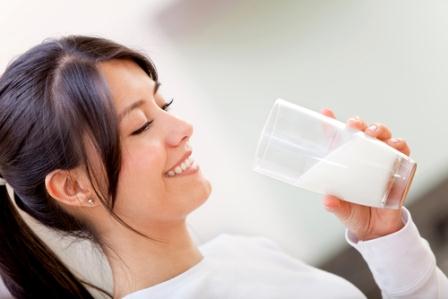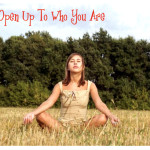
Let’s talk about a controversial dietary staple…Dairy. Is it as good for us as the experts say?
Continuing our discussion on eating healthy and how to get the nutrients you need from food, this week I’d like to talk about a controversial dietary staple…Dairy. So many of you fantastic and knowledgeable FGS readers responded to the posts on supplements and raw food-ing, and I am reaching out to you again on this one.
Really, for me it does not boil down to a love of milk and cheese, I could live without either just fine. It is about calcium and making sure I am getting enough of it. But we want the calcium that goes into our bodies to be “good” calcium, and I am still unclear on whether or not calcium supplements are that great for our health.
As women, we are told repeatedly by doctors and health experts that we have to get a certain amount of calcium to avoid osteoporosis later in life. The recommended daily allowance for calcium for women ages 19-50 is 1,000 mg, up to 1,200 mg for those over 50.
But what is the best source of calcium?
Your doctor probably asks if you are taking a calcium supplement at your annual visit, right? But I have read that the calcium in supplements can build up in the arteries, definitely not a good thing if this is true.
The latest news on the subject is that you are safe from this build up if you take your calcium supplement with a vitamin D supplement. Really?! This could be completely true, or it could be a big maybe because experts are still unsure.
I’m not willing to take the chance and have decided to get my calcium from food. Namely, cow’s milk. Why cow’s milk? Because almond milk or even orange juice that has added calcium is just as good as taking a supplement. And then you do not even know anything about the quality of the supplement.
So, I was fine with my three glasses of calcium a day. That is until I read The Beauty Detox Solution by Kimberly Snyder. In the book she explains that it is difficult for our bodies to digest animal products, especially dairy. As a matter of fact, in the first phase of her plan she suggests eliminating dairy from your diet completely while still eating a small amount of meat (if you are a meat-eater). Wow, eliminate dairy before meat…that got my attention.
In TBDS Kimberly explains that not only is dairy very difficult for our human bodies to break down and process (because of the high content of the proteins casein and whey) but also has links to autism and certain types of cancer. She states findings from studies funded by the National Institues of Health and the American Cancer Society which found “a strong correlation between casein intake and the promotion of cancer cell growth when exposed to carcinogens”. So dairy ups your risk of cancer? Ugh. The book goes on to say that osteoporosis is actually seen more often in those who consume higher amounts of dairy.
Kimberly, like many vegans and raw foodies, promotes getting your calcium through a plant-based diet. Kale, cruciferous veg (broccoli, cauliflower), collards, cucumber, romaine, spinach, sesame seeds and bok choy are said to be good sources of calcium. And I am fine with getting my daily intake of calcium from veggies.
So, here is my big question: How do you know if you are getting enough calcium from the veg you eat? It is easy to pour a few glasses of milk a day, but how can we be sure we are eating enough of these vegetables to get the perfect amount of calcium. I like my vegetables, but am not having an easy time of being a complete vegan, let me tell you.
All of this leads to possibly the biggest question of all: Do we really need as much calcium as “they” say we do?
This calcium thing has me confused and I would love to hear what your voices have to say about it!


4 Comments